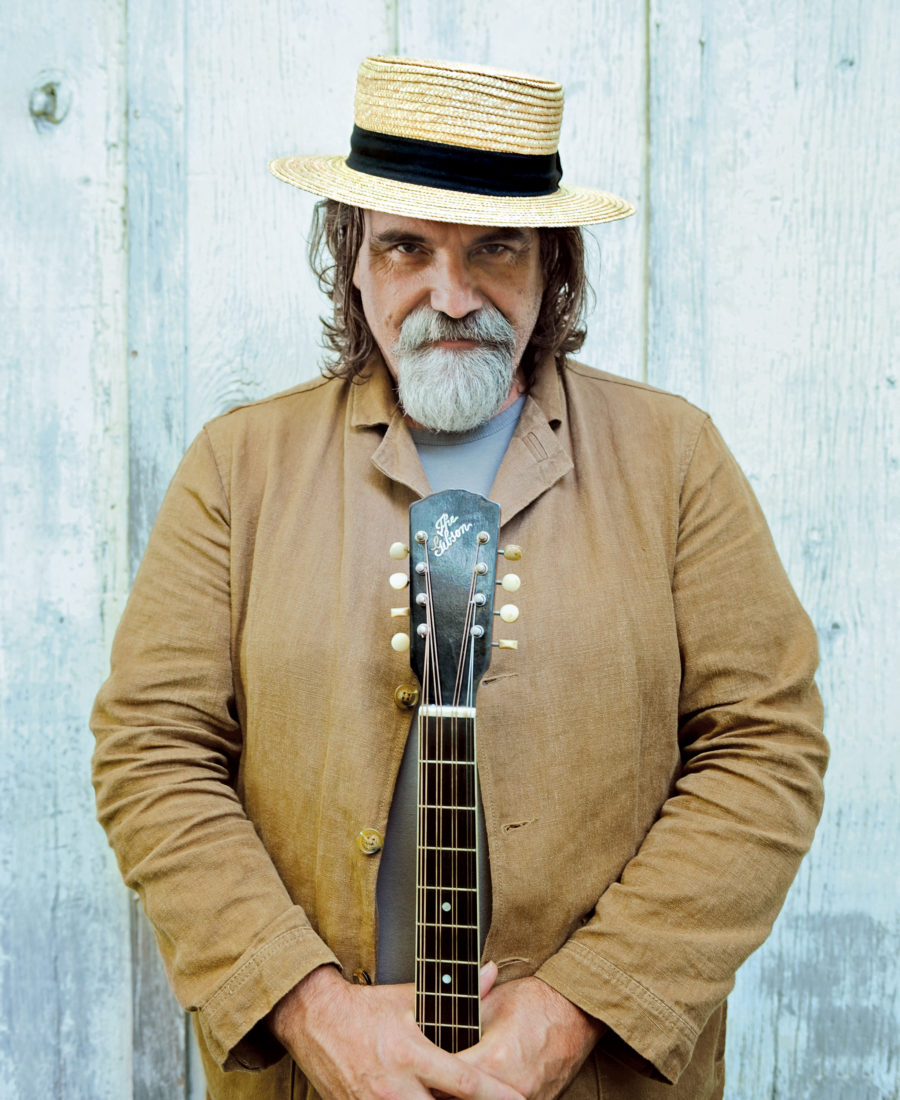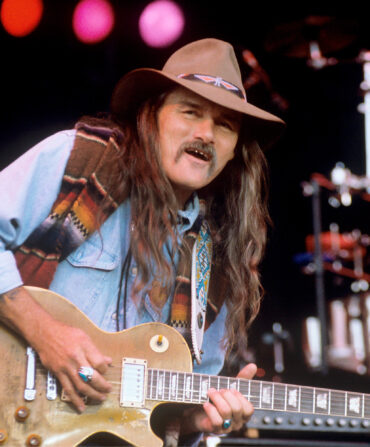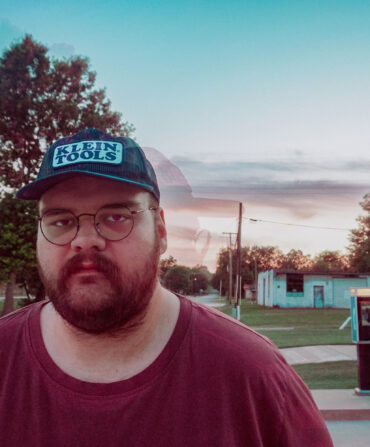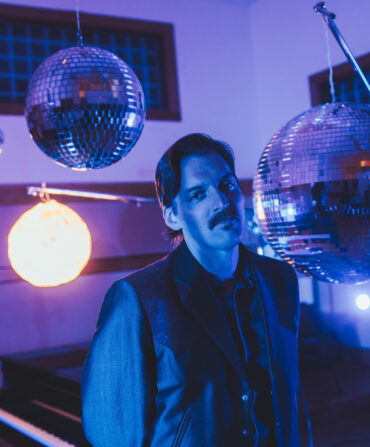Darrell Scott is walking around his neighborhood near Belmont University in Nashville when a car pulls up. His friend—bluegrass musician Tim O’Brien—tells him to get in, and they head toward the Ryman Auditorium, where the Del McCoury Band is performing. O’Brien tells Scott that the McCourys want to call him onstage to sing Hank Williams’s “A House of Gold.” He can do nothing but grin. The Ryman holds a special place for Scott, who as a gifted, literary songwriter has penned hits for a who’s who of Nashville: Garth Brooks, the Dixie Chicks, Tim McGraw, and Faith Hill among them. But he’s also one of Nashville’s most in-demand session musicians as well as an accomplished solo artist, with an upcoming album called Long Ride Home. Before he hit the stage, we talked with the London, Kentucky, native about his own country roots.
Do you remember the first time you went to the Ryman?
Oh, yeah. My family took our first vacation ever in 1965 to visit the mother church—the Grand Ole Opry. On that trip, I got my first instrument, a bad Fender bass knockoff, for fifty dollars at a pawnshop. Every following vacation was spent at the Grand Ole Opry. My family could not have been more into country music if we’d been members.
Your father was an aspiring singer. Did he ever try to get a recording deal?
My dad had zero clue how to get Nashville labels to hear him. So before one visit in 1966 or ’67, my dad and my brothers and I cut a 45 at home, and my mom got all dressed up and walked up and down Sixteenth and Seventeenth avenues, hitting the labels with this little 45 while we waited in the car. I’d give anything to have a copy of that 45. There were probably only five made.
So Long Ride Home is an apt title.
Our South was Kentucky and the mythology of coal miners, and there’s an old style of country music that relates to those stories. Some of my songs on Long Ride Home have been around since I was sixteen. We had moved to California and my dad rented a cabin in Big Bear, where we wrote country songs. I had eight or nine solo albums and never thought of them. But then I dragged them out when I was working on this record.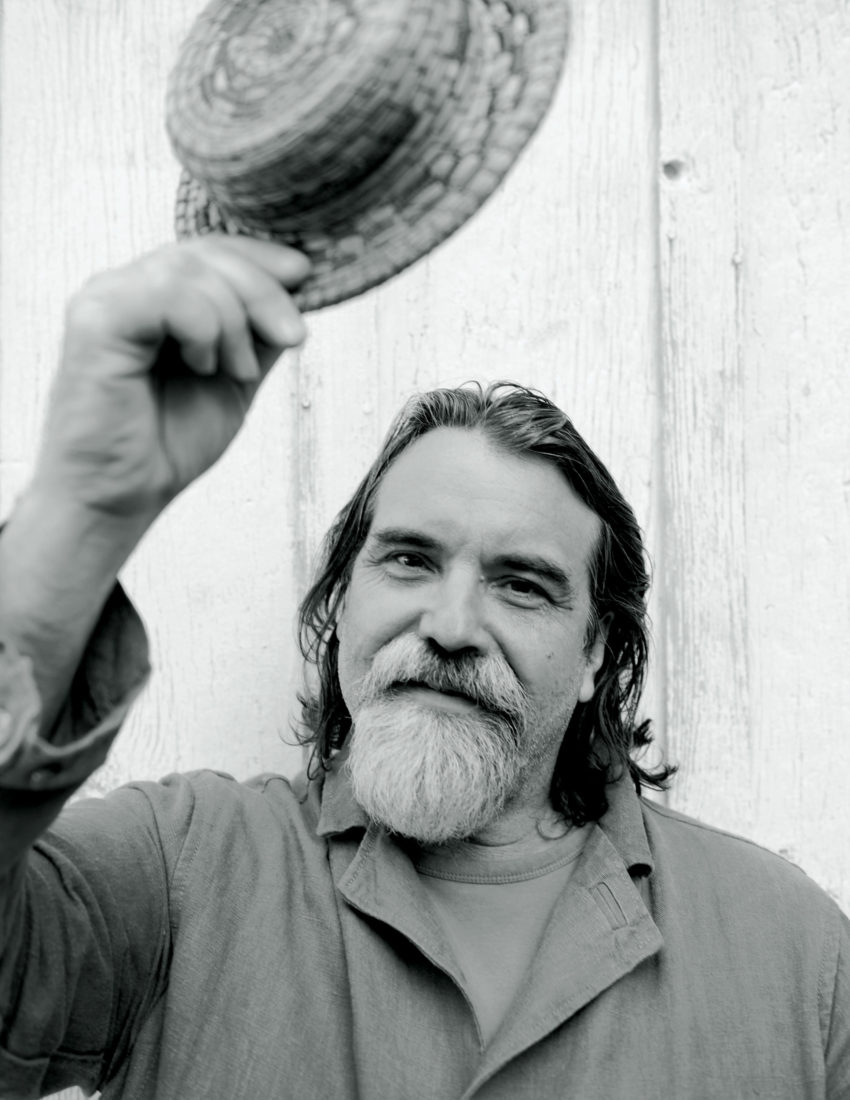
You majored in English at Tufts University. How did that affect your songwriting?
It exposed me to a lot of literature. I still love Walt Whitman’s Leaves of Grass. The broad stroke of humanity is what appeals to me. The first song I wrote was a takeoff of “Delia’s Gone” by Johnny Cash. I was twelve. But going to school was taking a break and trying to find something else or do it a different way. In hindsight it made me become a better songwriter.
As a musician and songwriter, you seem pretty content to be in the background.
Having a monstrous commercial hit doesn’t really matter to me, but it is good money! I didn’t set out to write hits; they just became hits afterward. Celebrity does not matter to me. It’s an awkward undertaking. I don’t think I’ll ever have a number one hit with me singing.
Do you have a set time when you write?
God, no. I don’t have a set time to do anything. I drink coffee, but I can do that at six a.m. or noon. I just write when I feel like it. The only exception is when I get into a room to write with someone. It’s a little weird to meet a stranger and try to produce art in three hours, but that’s the challenge of it.
You’re part of Robert Plant’s Band of Joy. Were you a Led Zeppelin fan growing up?
No, I wasn’t hip enough. I was into country music. Robert is an encyclopedia of roots music: blues, bluegrass, country, anything. If you’re around him when he’s offstage, he loves to talk about music.
What do you like most about Nashville?
I avoided moving here until I was thirty-two because I had the feeling they were going to whittle my art away and produce me into another one of the same. But look, there’s Sam Bush onstage right now with the McCourys. Sam’s a friend. People like Tim [O’Brien] and Steve Earle. These are people who know the soul of music. It’s not just the plastic stuff.


